
Need to find the best ERW tube mill line manufacturer? This guide will help you discover top manufacturers, key components of ERW tube mills, and what to consider when choosing the best provider for high-quality steel pipes.
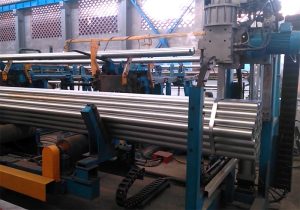
ERW tube mill lines are indispensable for producing high-quality carbon steel pipes, which are crucial for a multitude of applications across different industries. The primary material used in these mills is strip steel coils, which undergo a series of processes to be transformed into sturdy pipes. Chinese ERW tube mills primarily manufacture carbon steel pipes, emphasizing durability and reliability.
The specifications of the ERW tube mill lines play a vital role in ensuring the quality and efficiency of the production process. Adhering to stringent specifications allows manufacturers to produce pipes that meet today’s competitive standards. Integrating advanced technology and paying meticulous attention to detail ensures each pipe is of the highest quality.
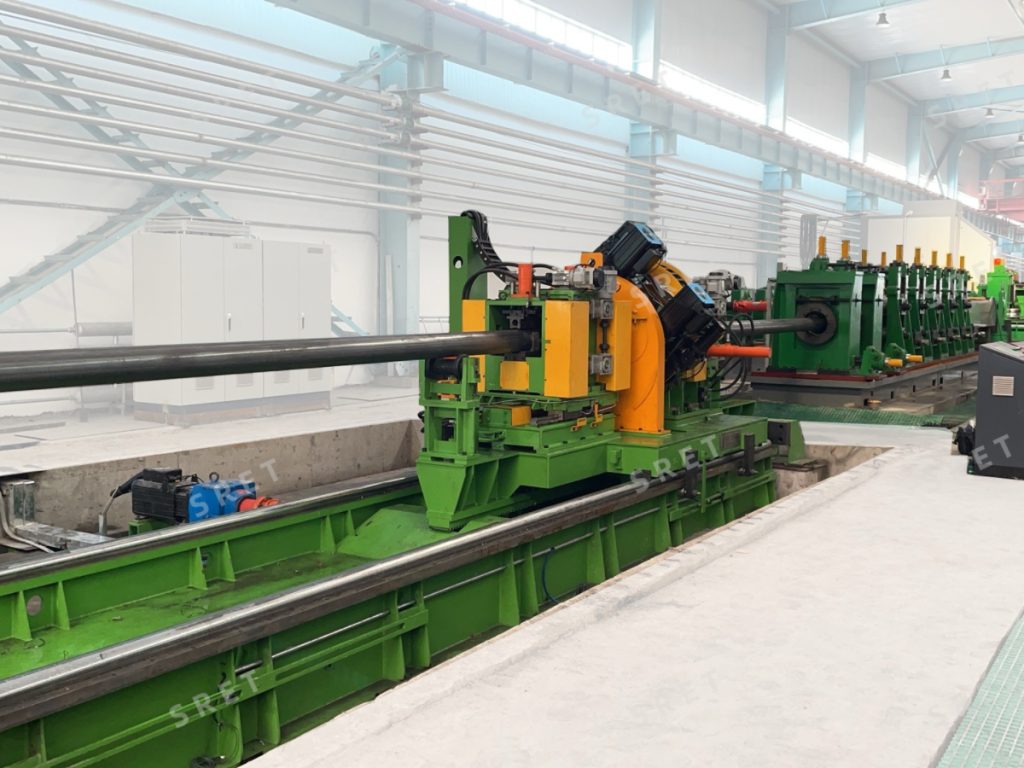
An ERW tube mill line consists of several key components that work in harmony to produce high-quality steel pipes. The uncoiler initiates the production line by feeding steel coils into the tube mill, maintaining efficiency and minimizing downtime.
Next, the forming rollers come into play, shaping the flat steel strip into a round or square pipe while producing round the wall thickness and diameter of the pipe, ensuring that it meets the required specifications.
The welding units then join the edges of the steel pipe strip using high-frequency induction welding, creating a strong and reliable seam. Sizing rollers further refine the pipe, ensuring it meets precise diameter and roundness specifications.
Finally, the flying cut-off saw cuts the welded tube to the desired length while the production line remains operational, and a finishing system straightens and smooths the pipe surface, preparing it for final use. Together, these components form a cohesive machine that delivers consistent and high-quality results.
The production process in ERW tube mills involves several critical stages to ensure high-quality output. It all begins with the uncoiling and flattening of steel coils to create a flat strip, a fundamental step that sets the stage for the subsequent processes. Edge trimming follows, cutting the steel strip to the precise width needed for effective welding.
During the forming stage, the steel strip is bent into specific shapes, preparing it for high-frequency welding. This stage is vital as it shapes the pipe and prepares it for the next phase. Electric resistance welding (ERW) is then employed, allowing for the efficient production of strong steel pipes. This method ensures that the welds are robust and capable of withstanding high pressures.
Following welding, the pipe is cooled and sized to exact specifications for roundness and diameter, ensuring uniformity and industry standards.
The flying cut-off saw then cuts the pipes to the specified lengths, enhancing production speed and accuracy. Quality control measures, including non-destructive testing, are carried out to identify any defects and ensure the pipes comply with safety standards. This meticulous process guarantees that every pipe produced is of the highest quality.
Understanding ERW tube mills’ technical specifications is vital for selecting the right equipment for production needs. These mills utilize various strip steel coil specifications to create pipes, and it’s important to consider your specific production requirements, such as tube dimensions and material types, before making a selection.
The quality of the tube mill frame materials, precision, and components play a significant role in the manufacturing process. For instance, the specific pipe diameter and thickness requirements can vary by model, impacting the production capabilities. Additionally, the diameter error tolerance for pipes produced is typically around 0.5% of the pipe’s outer diameter, ensuring high accuracy.
Production speeds for different tube mills can range from 15 to 110 meters per minute, depending on the model and specifications. Power requirements are also determined based on the operational capacity of the machine tube mill. Advanced technology and high-quality materials, such as those used by Hebei Tubo Machinery Co., Ltd., enhance the performance and efficiency of ERW pipe mills and tube mill machines.
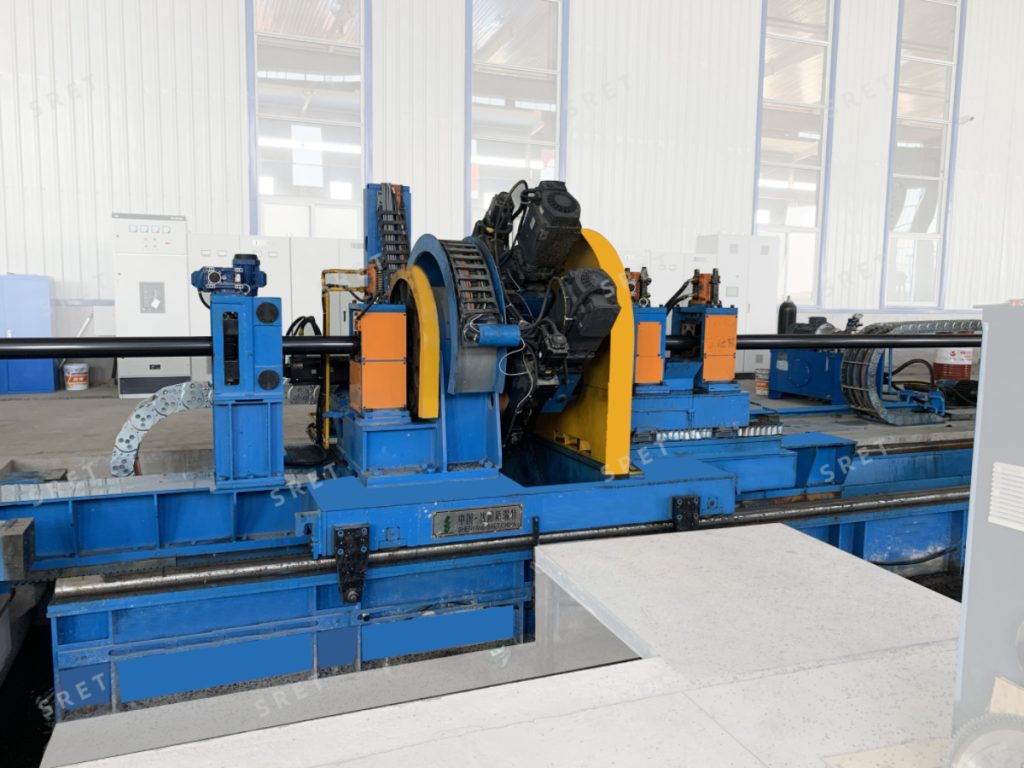
ERW tube mill lines offer numerous advantages that make them a preferred choice for producing steel pipes. One of the primary benefits is the high production efficiency achieved through automation and advanced technology, which leads to higher production rates and reduced waste. The welding speeds achievable with high-frequency ERW can reach up to 100 meters per minute for smaller diameter pipes, significantly enhancing production rates.
Another advantage is the high dimensional accuracy of ERW tubes, thanks to the precise shaping provided by the forming rolls. This precision ensures that the pipes meet the exact specifications required for various applications. Additionally, the continuous weld created during the electric resistance welding process enhances the strength of the ERW tubes, making them suitable for high-pressure applications.
The mechanical properties of HF-ERW joints are also improved, reducing the need for fitting during installation and ensuring long-lasting performance. ERW tube mills are versatile and can produce pipes in a variety of sizes, accommodating both small and large diameters. This versatility makes them ideal for a wide range of industrial applications.
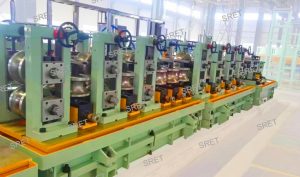
Steel pipes produced by ERW tube mills are used across various industries, thanks to their versatility and cost-effectiveness. In the construction industry, ERW pipes are essential for producing scaffolding and structural frames, providing critical support for various building projects. The HG325 mill, for example, is primarily used in the construction sector for highway infrastructure, showcasing the adaptability of ERW tube mills in different applications.
In the automotive sector, ERW pipes are indispensable for creating components like exhaust systems, fuel delivery systems, and high-performance radiators. The strength and resistance to corrosion of these pipes make them ideal for such high-demand applications. Additionally, ERW pipes are used in cooling systems to maintain optimal engine temperatures.
The chemical industry also benefits from ERW tube mills, as they produce piping systems that can withstand high pressures and corrosive substances. This versatility demonstrates the wide range of applications for ERW pipes, including:
Moreover, the structural integrity of ERW pipes makes them suitable for these applications.
Cost savings associated with ERW pipes make them an attractive option for large-scale projects in various sectors, with production costs potentially being 10 to 30% lower compared to other methods like seamless or submerged-arc welding. This cost-efficiency, coupled with the ready availability of ERW pipes, allows for quick access and shorter lead times for projects.
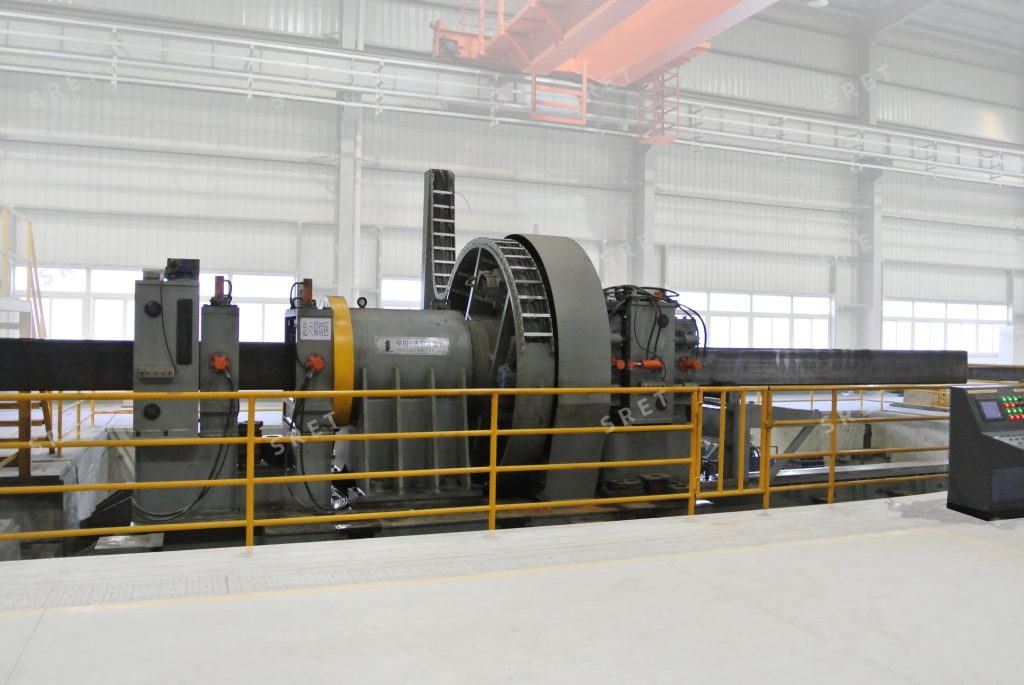
Customization is a critical aspect of ERW tube mill line, allowing manufacturers to tailor the equipment to meet specific customer requirements. Adjustments in aspects like pipe diameter and wall thickness ensure the final product aligns with client specifications. Offering full customization allows manufacturers to cater to a diverse range of needs.
After-sales services are equally important in ensuring the long-term success and operational efficiency of ERW tube mills. These services typically include operator training, installation, and preventive maintenance, providing ongoing technical support for clients. Technical consultation and spare parts supply are integral to after-sales services, ensuring prompt issue resolution.
The warranty period for ERW tube mill lines typically lasts between 12 to 24 months, covering manufacturing defects and providing customers with peace of mind. Regular maintenance of components like rollers and welding units ensures optimal performance and prevents breakdowns, underscoring the importance of comprehensive after-sales service.
High-frequency welding technology is central to ERW tube mills, enabling efficient joining of steel components. This technique, known as high-frequency induction welding, is the primary method used in the ERW pipe mill for creating strong and reliable welds. There are two types of high-frequency welding: contact welding and induction welding, each offering distinct advantages in the high frequency welded process.
High-frequency electric-resistance welding (HF-ERW) has the following characteristics and effects:
This technology not only improves pipe quality but also significantly increases production speed by allowing for high speed joining of steel components using a pipe production line and pipe making machine.
One notable case study is the recent installation of the HG325 ERW tube mill in Uzbekistan. This installation has successfully completed its setup and is now in production, designed to meet the growing demand for large diameter pipes. The efficiency of this installation highlights the effectiveness of ERW tube mills in meeting specific client needs and enhancing production capacity.
Another example from South America demonstrates the high production speeds achieved by ERW tube mills, reaching up to 120 mm per minute. This capability allows manufacturers to meet the rising demand for steel pipes across various sectors.
Customers have reported significant improvements in production capacity and product quality following ERW tube mill installations, leading to enhanced client satisfaction and competitive production schedules.
Choosing the right ERW tube mill manufacturer is vital for ensuring your production line’s quality and efficiency. Evaluating the technical design team, successful customer cases, and factory capabilities is essential when reviewing a supplier’s design approach. Visiting a supplier’s factory can provide valuable insights into their manufacturing process and capabilities, helping you make an informed decision.
A manufacturer’s reputation and reliability should also be assessed by reviewing customer feedback and industry references. SRET was founded in Shenyang, Liaoning province, China, in the year of 1989, by 5 university senior professors, with a original mindset of being a industrial pioneer of China’s tube mill machine manufacturing. For the past 30 years, SRET has remained the industrial leadership with continuous innovation and quality improvement. Today, SRET designs, engineers, manufactures, and supplies a full range of ERW tube mill machinery that satisfies your variety of application needs. 3 decades of experience and expertise distinguish SRET from the other competitors. A highly qualified engineering team and experienced production team assure that exactly the equipment desired is delivered to the customer. Our pipe & tube mill machinery promise the top quality performance and production of high grade tubes. Everyday, we work hard to meet the rigorous engineering and design expectations that the clients come to value.
Ensuring that the manufacturer company can meet your specific production needs will contribute to the long-term success of your operation.
In conclusion, ERW tube mill lines are essential for producing high-quality steel pipes that meet the diverse needs of various industries. The key components, production process, technical specifications, and advantages of these mills highlight their significance in modern manufacturing. By choosing the right manufacturer and leveraging customization and after-sales services, you can ensure the long-term success and efficiency of your ERW tube mill operations. The advancements in high-frequency welding technology further enhance the quality and production speed of these mills, making them a valuable asset in the manufacturing world.
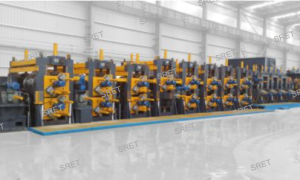
The primary material used in ERW tube mills is strip steel coils, which undergo a series of processes to be shaped into pipes. This ensures the production of high-quality welded tubes.
The key components of an ERW tube mill line are the uncoiler, forming rollers, welding units, sizing rollers, flying cut-off saw, and finishing system. These elements are essential for maintaining a continuous flow of material and producing high-quality pipes.
High-frequency welding technology significantly enhances the production of ERW pipes by enabling lower heat input and improved dimensional accuracy, which reduces distortion during welding. Additionally, it accelerates production speed through the rapid joining of steel components.
ERW steel pipes are commonly utilized in construction for scaffolding and structural frames, in the automotive industry for exhaust and fuel delivery systems, and in chemical applications for piping systems capable of withstanding high pressures and corrosive substances.
Consider the manufacturer’s experience, the quality of their technical design team, and their factory capabilities when choosing an ERW tube mill manufacturer. Additionally, reviewing customer feedback and visiting the factory for firsthand insights can significantly enhance your decision-making process.
